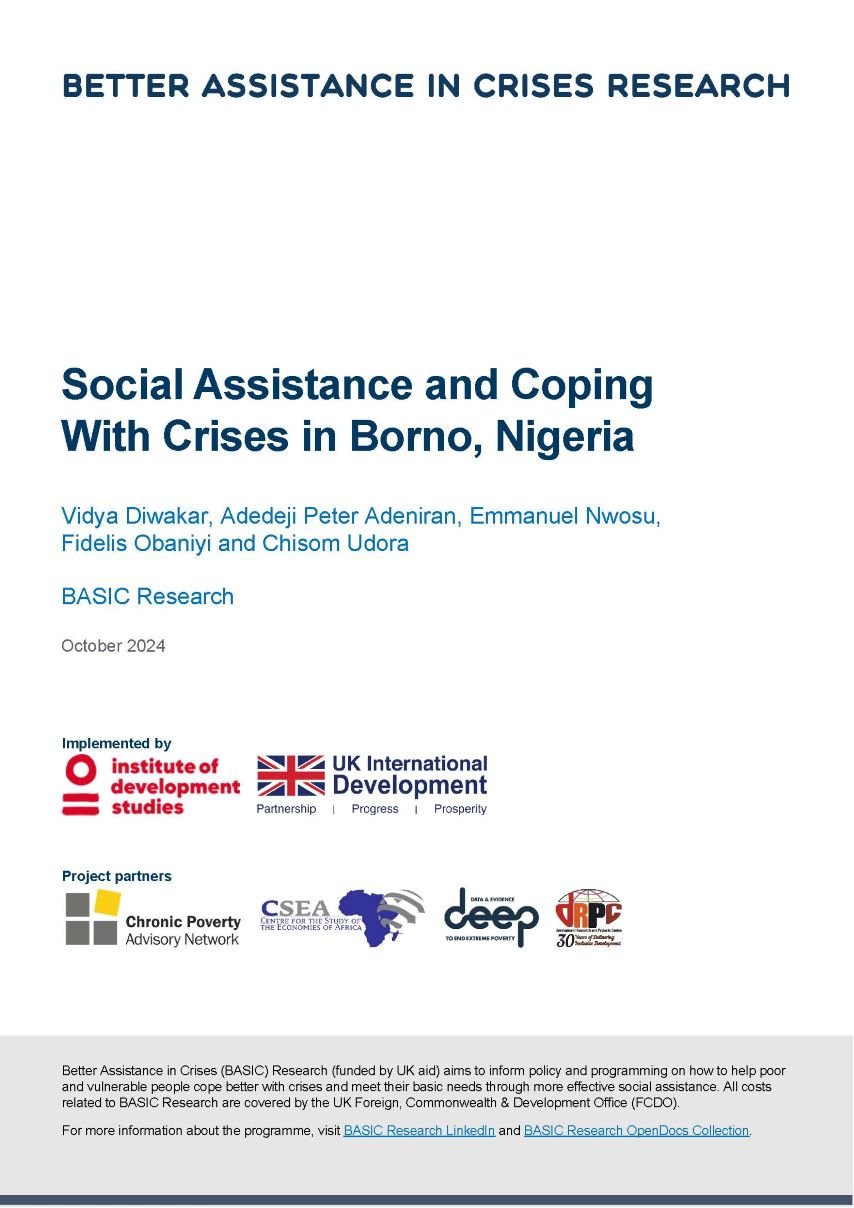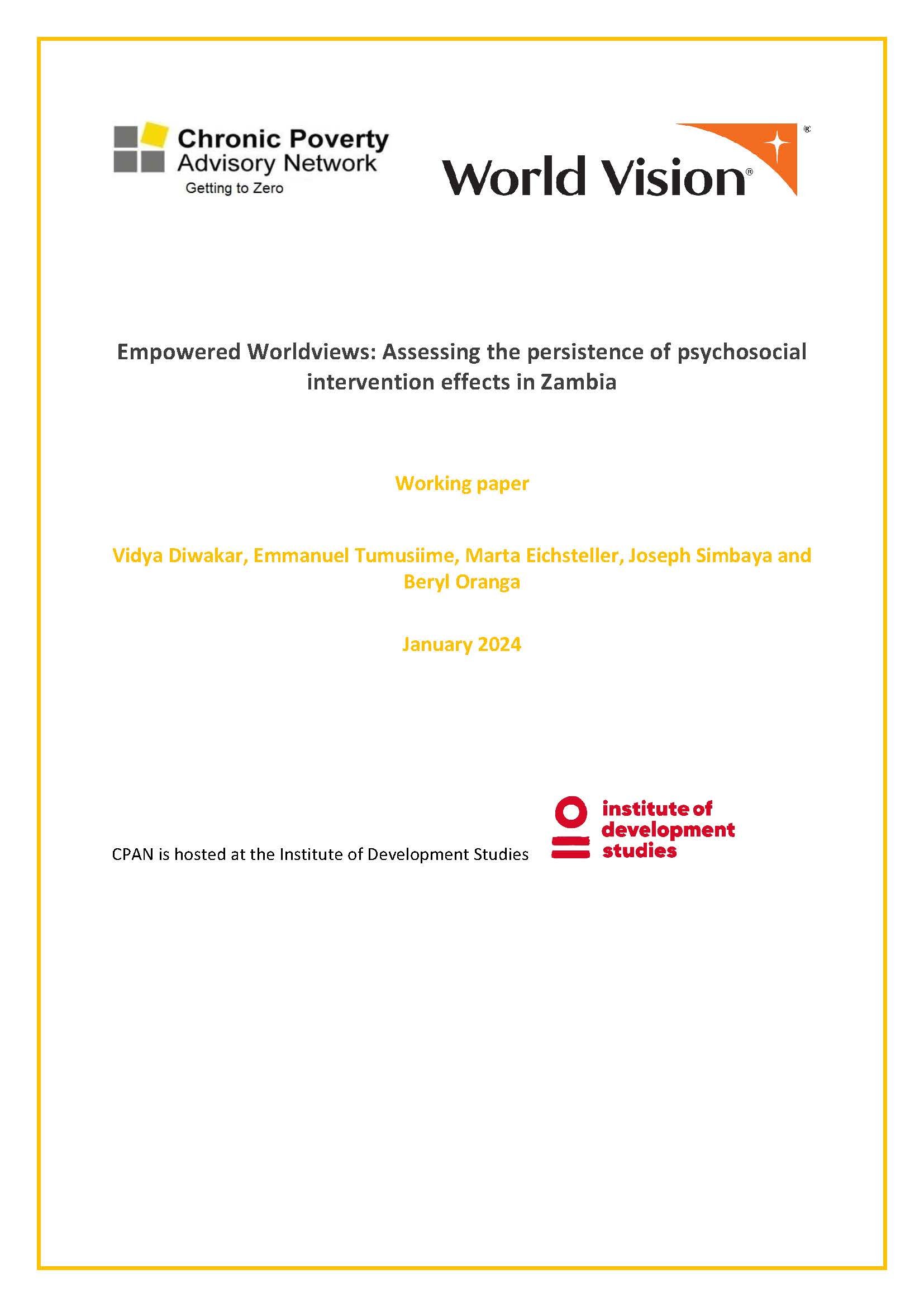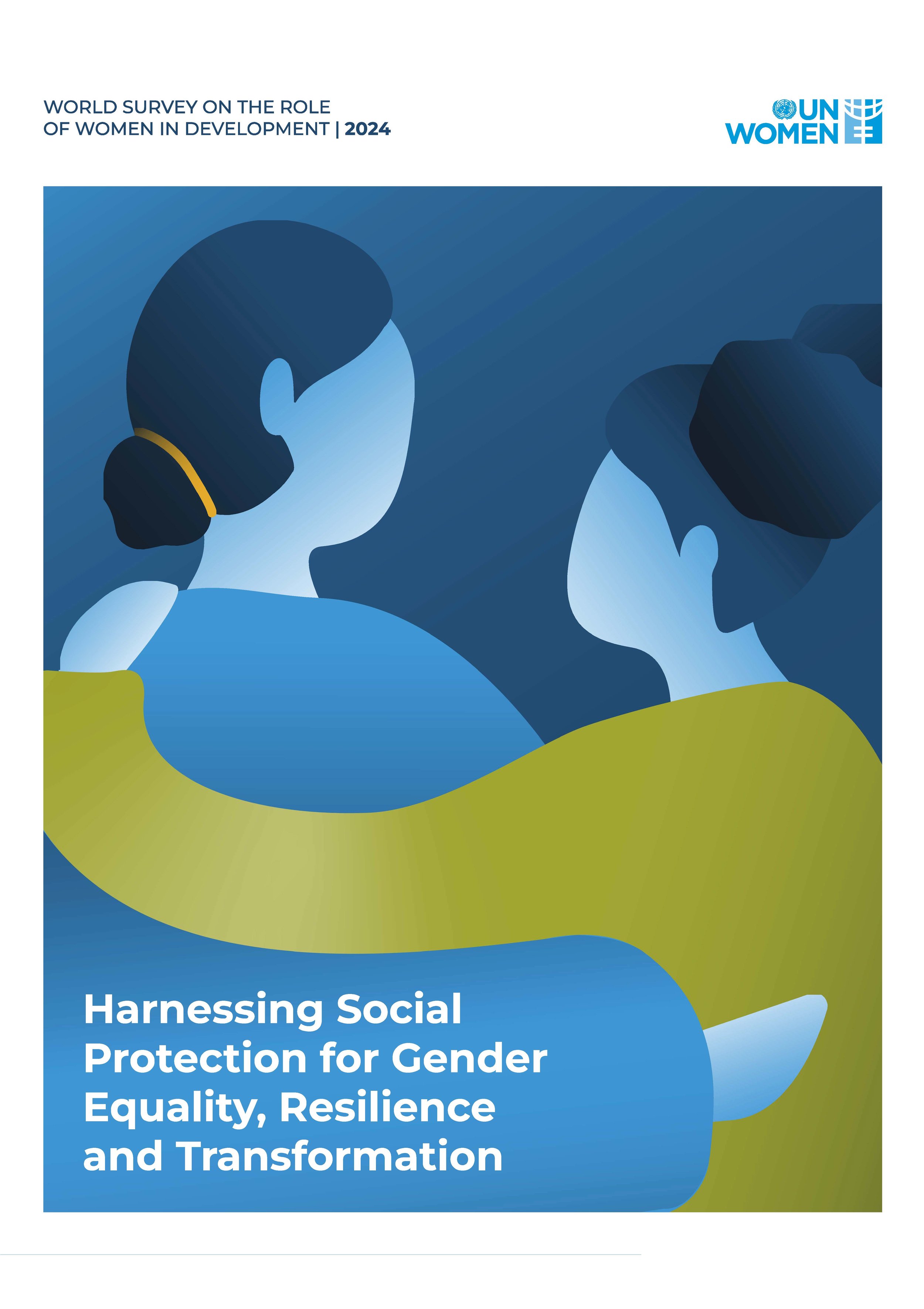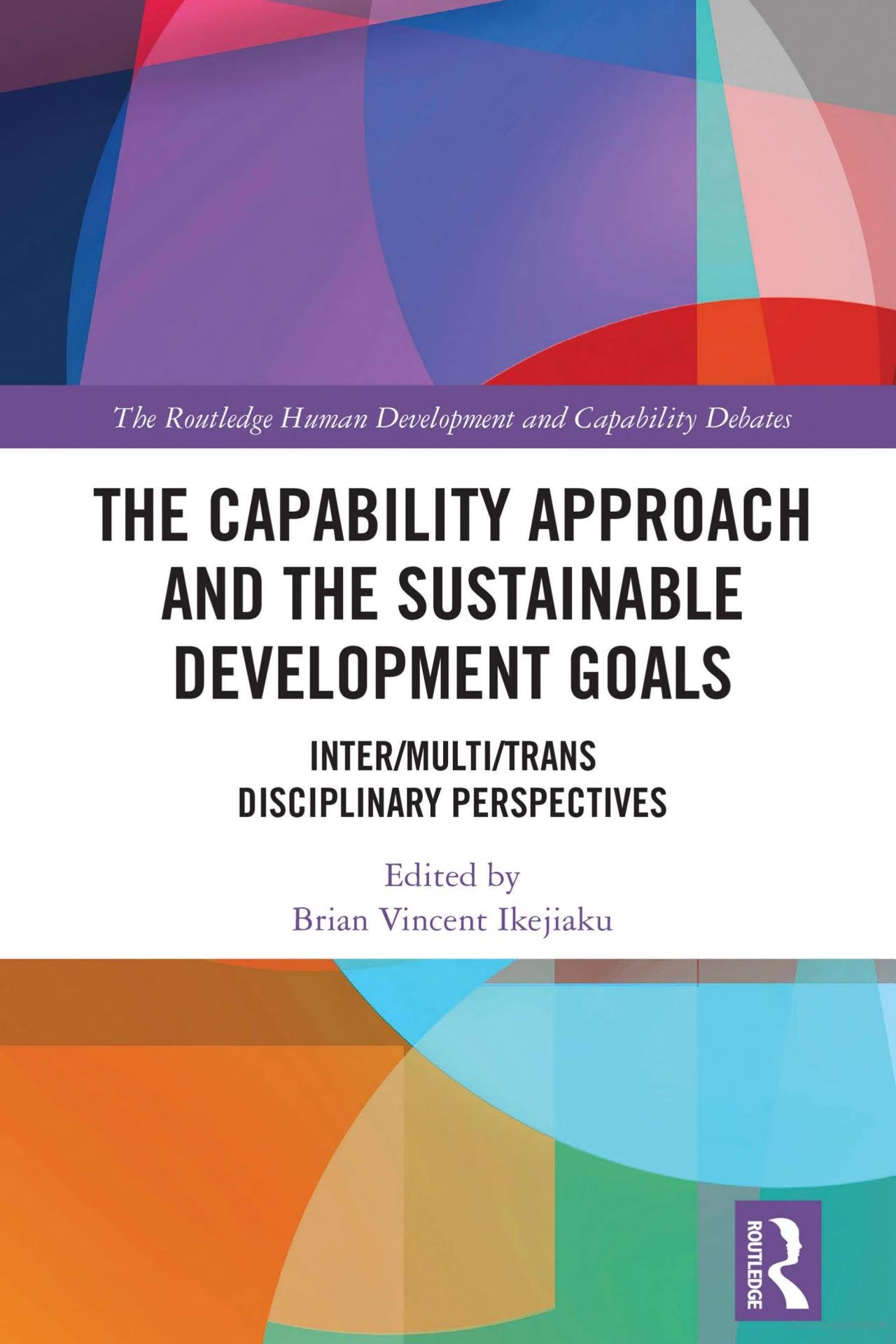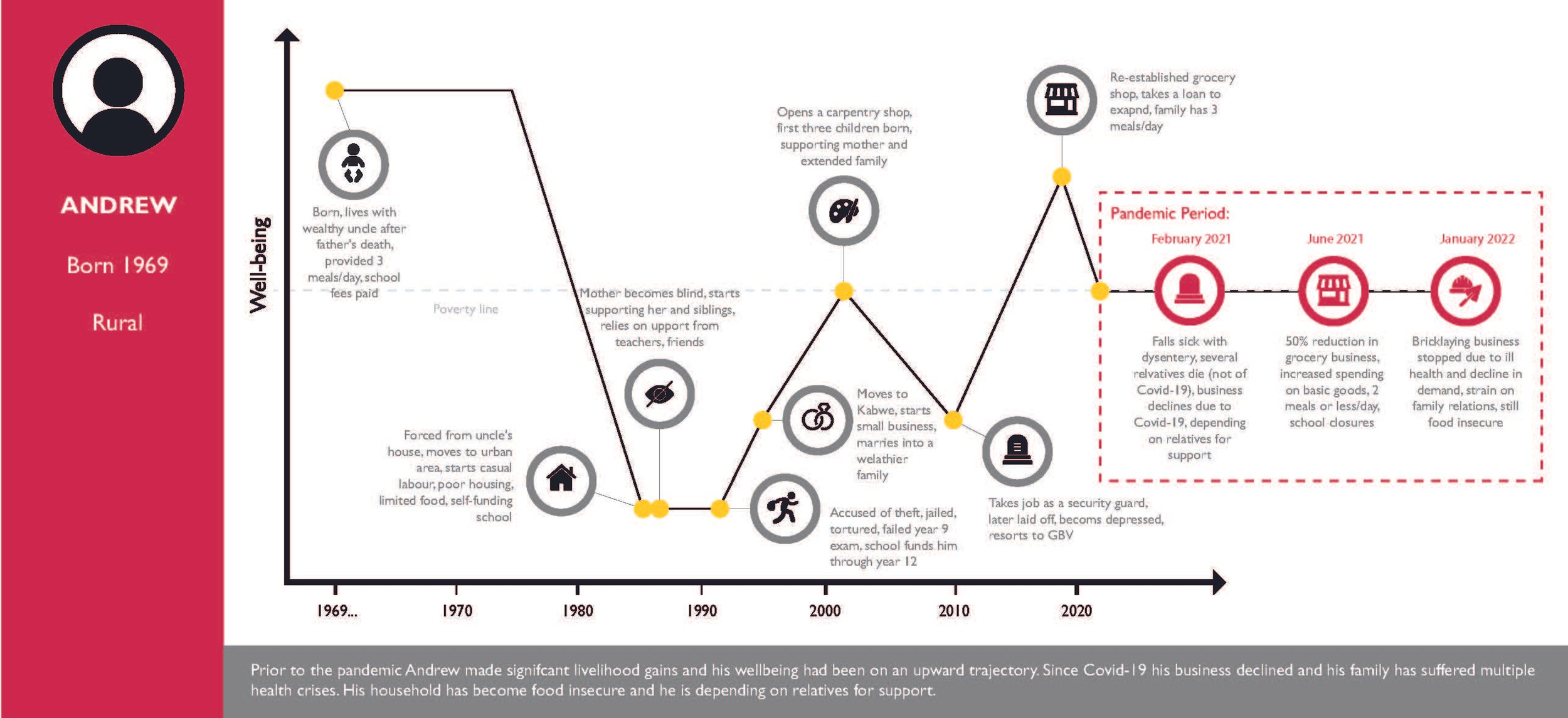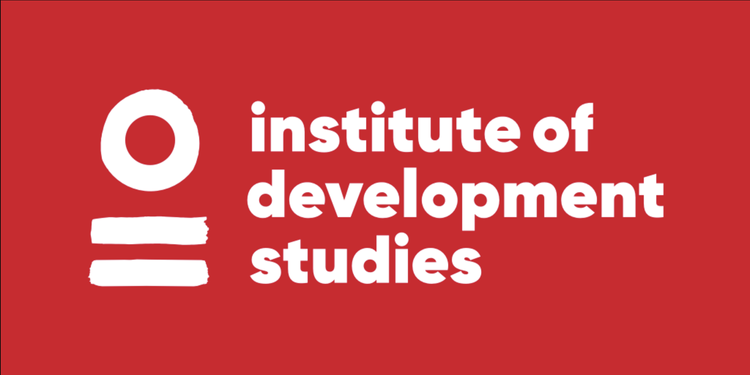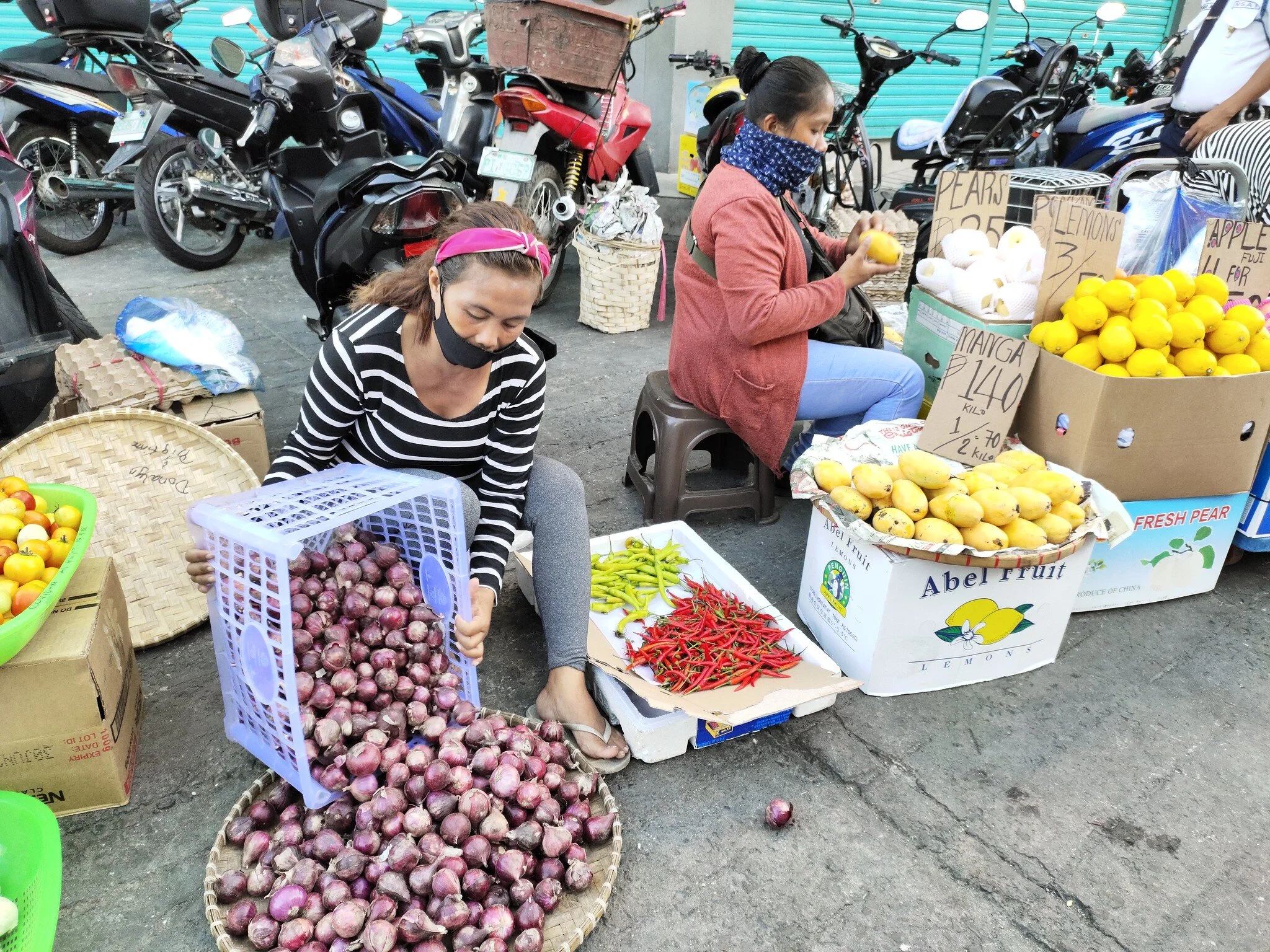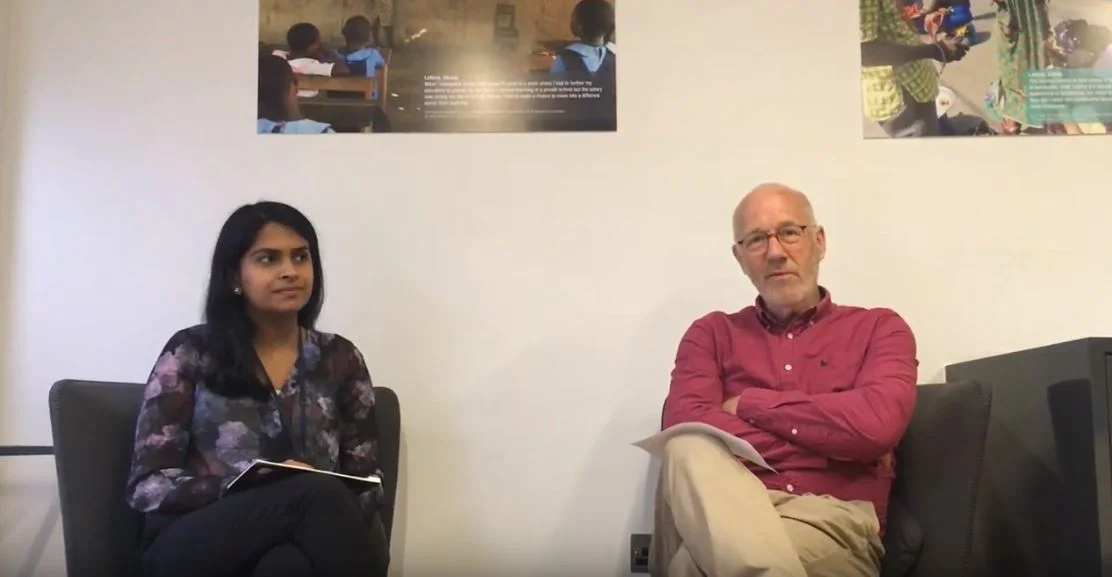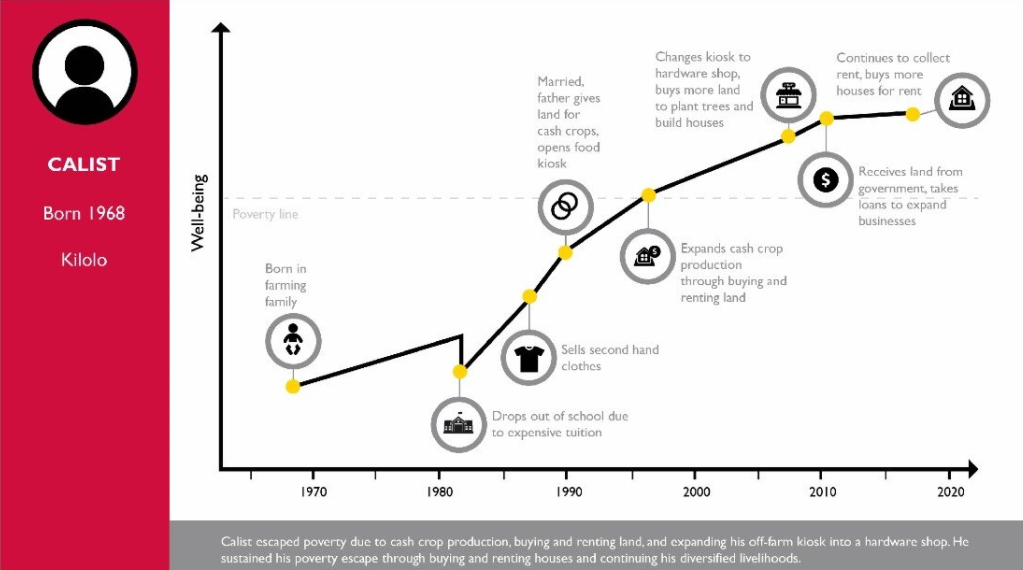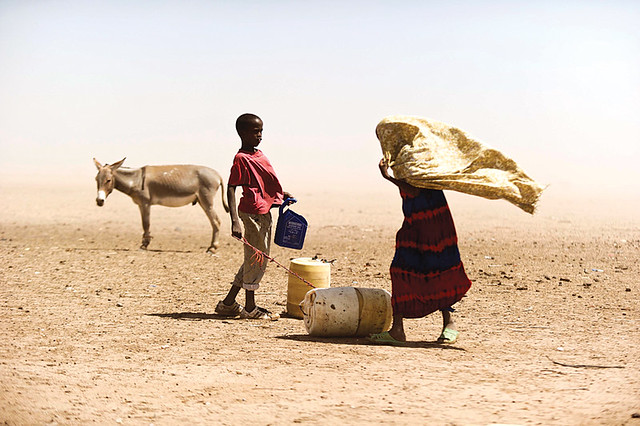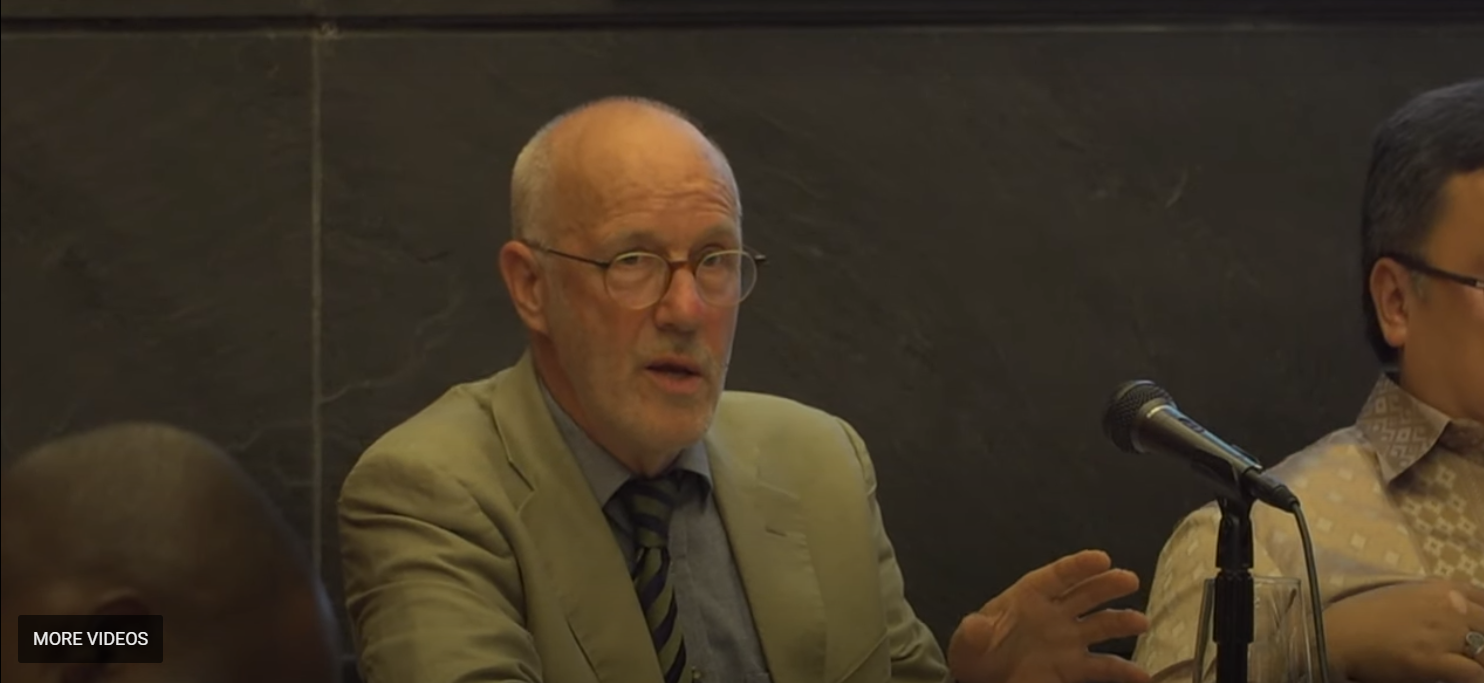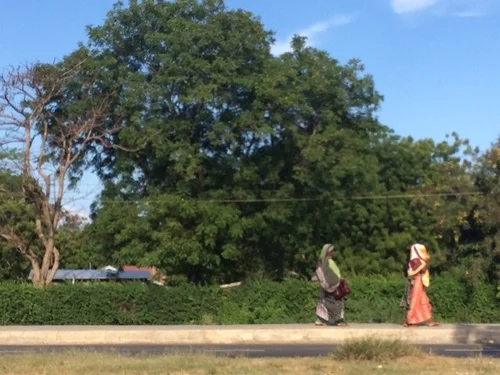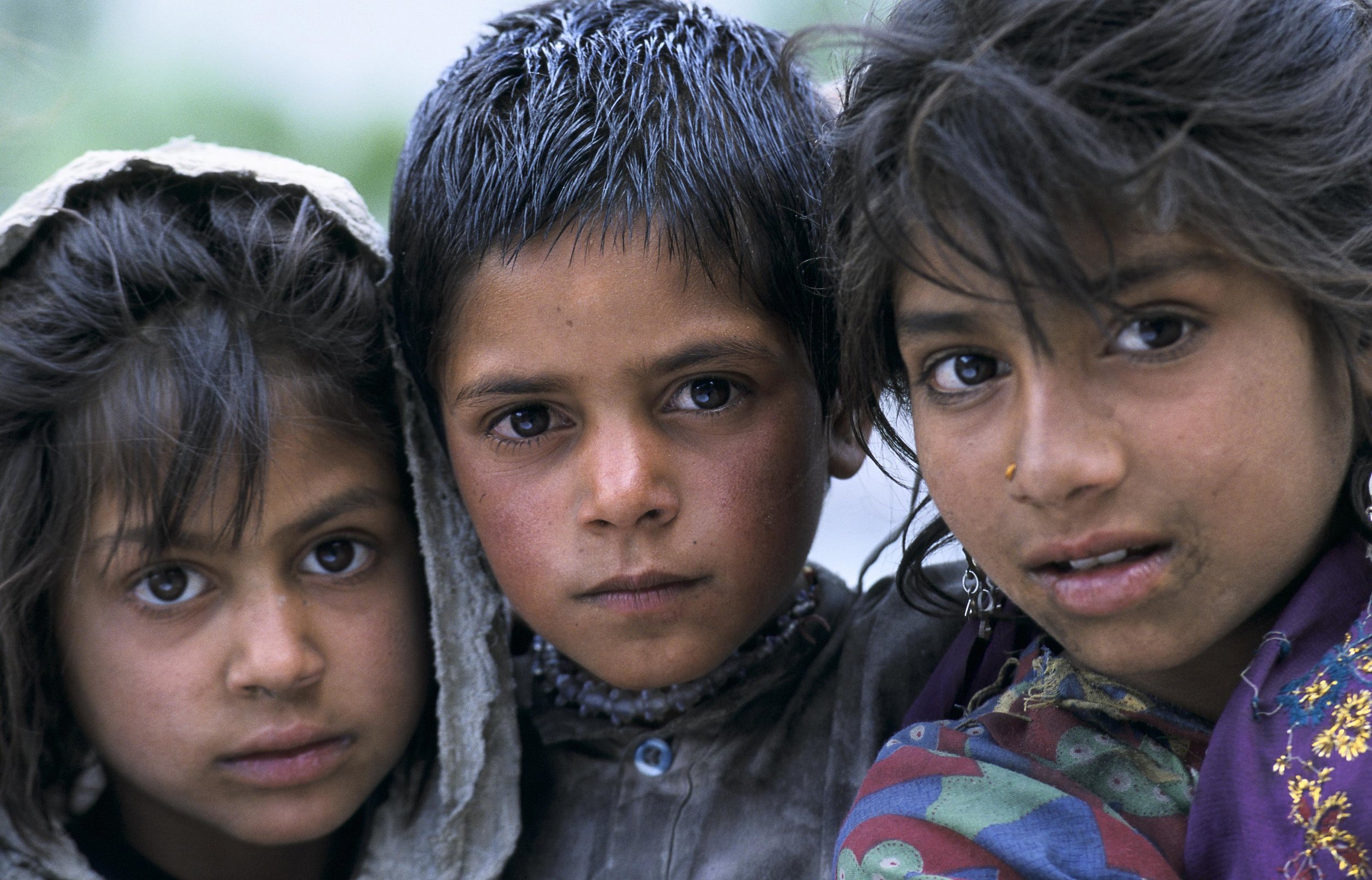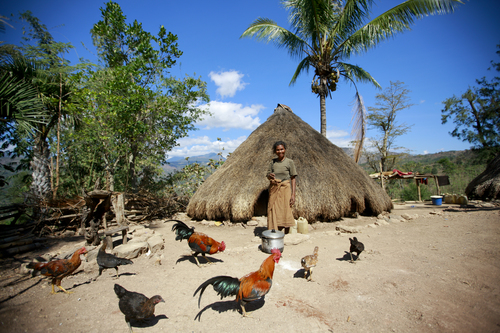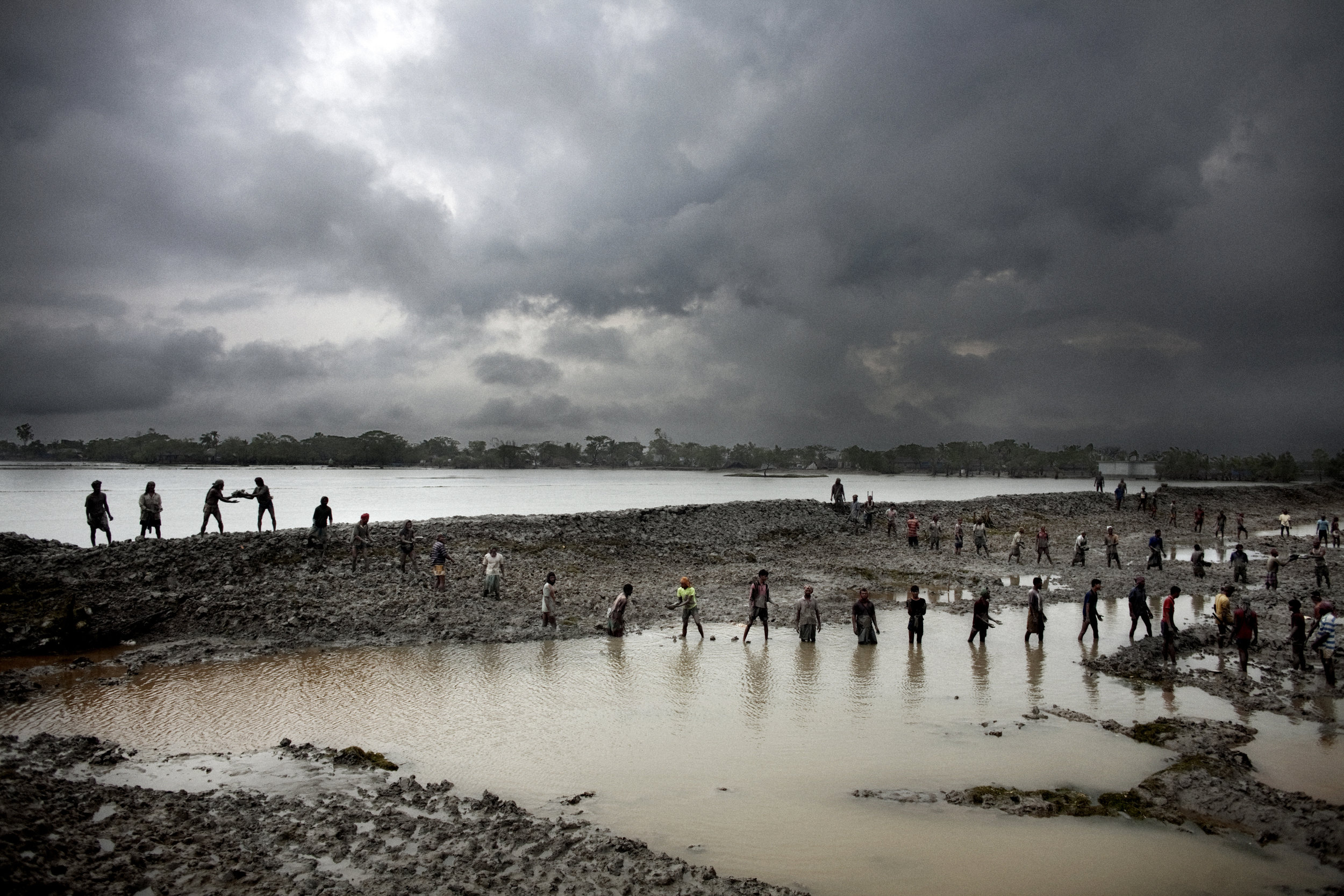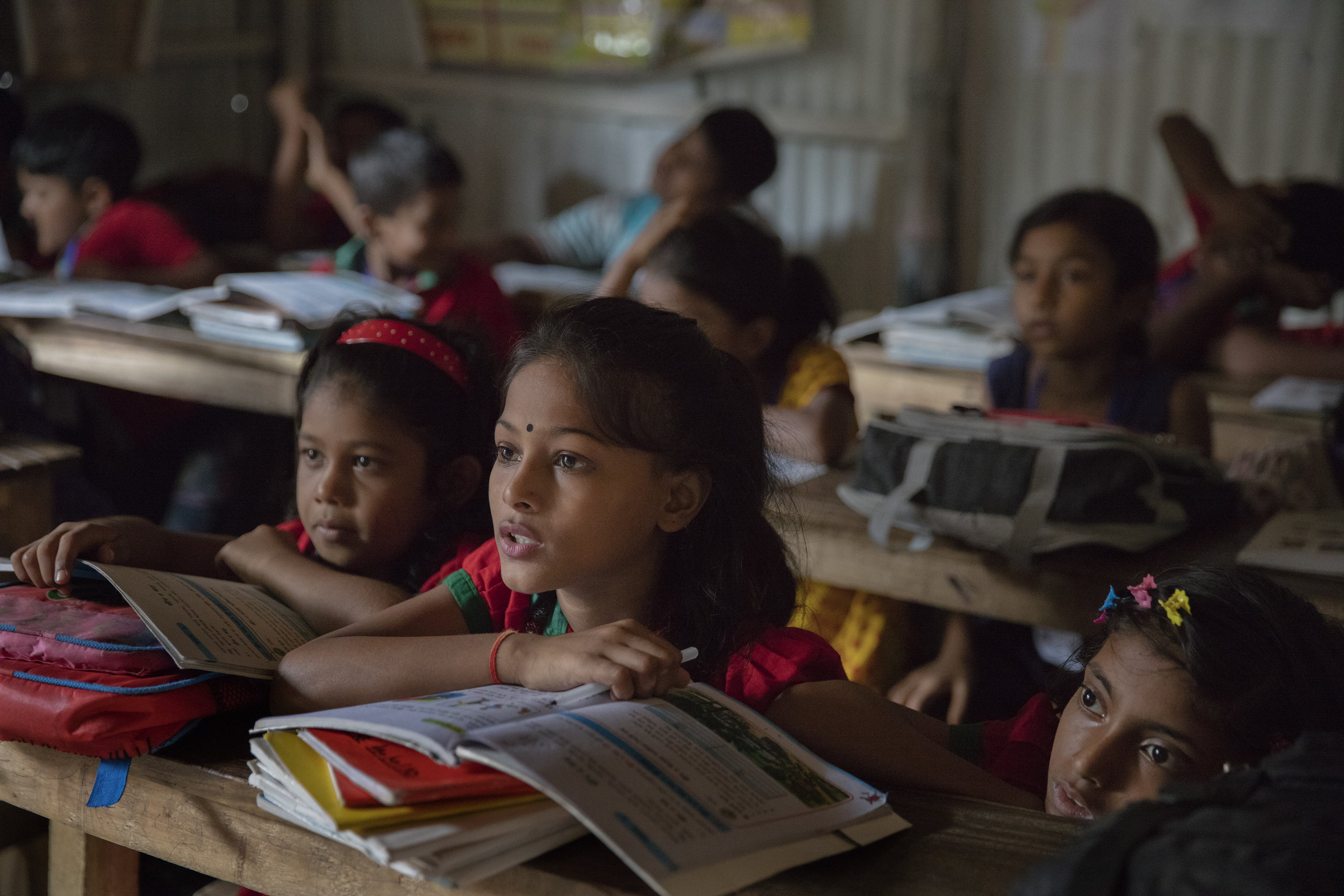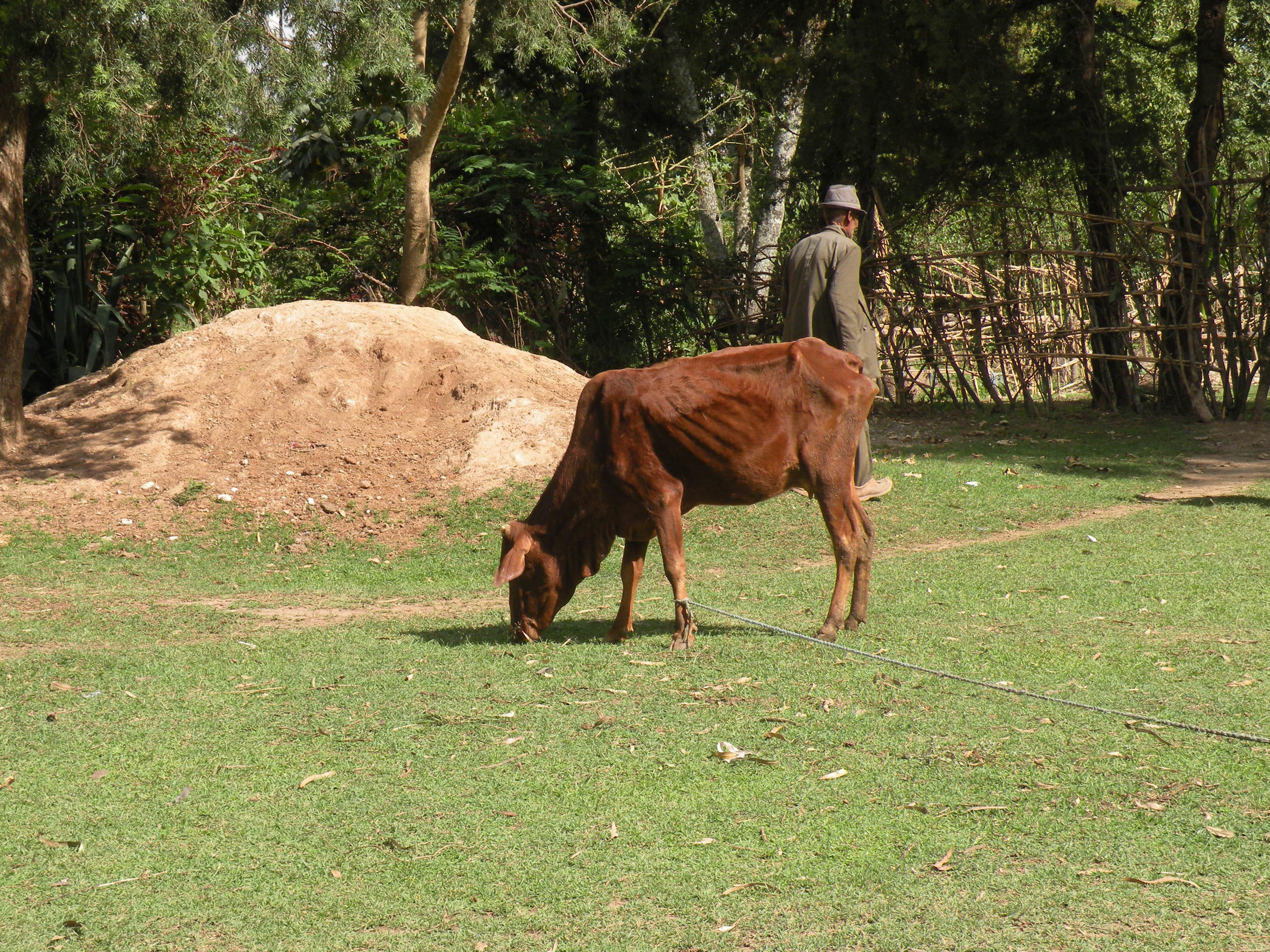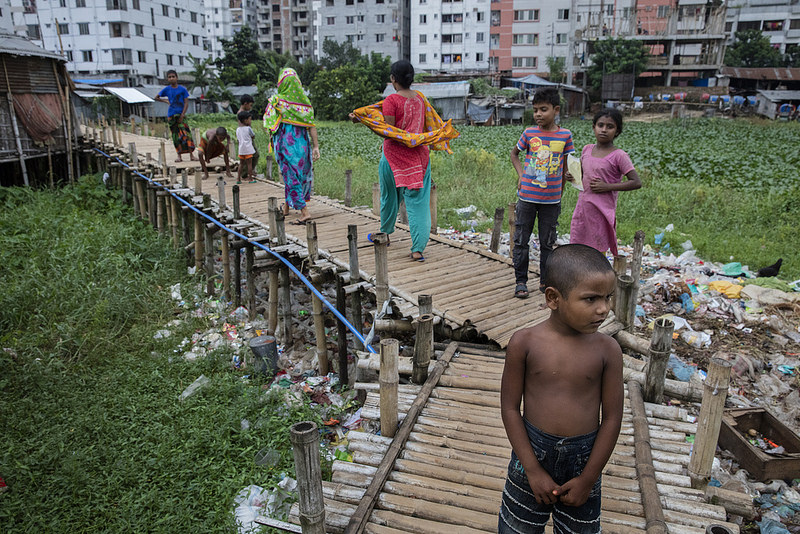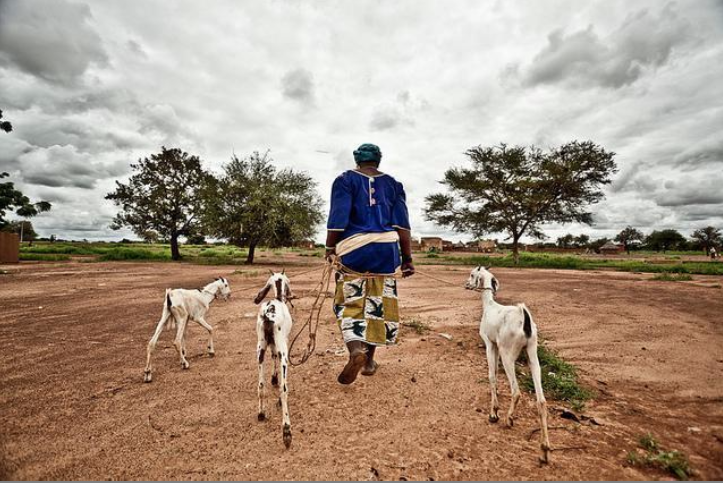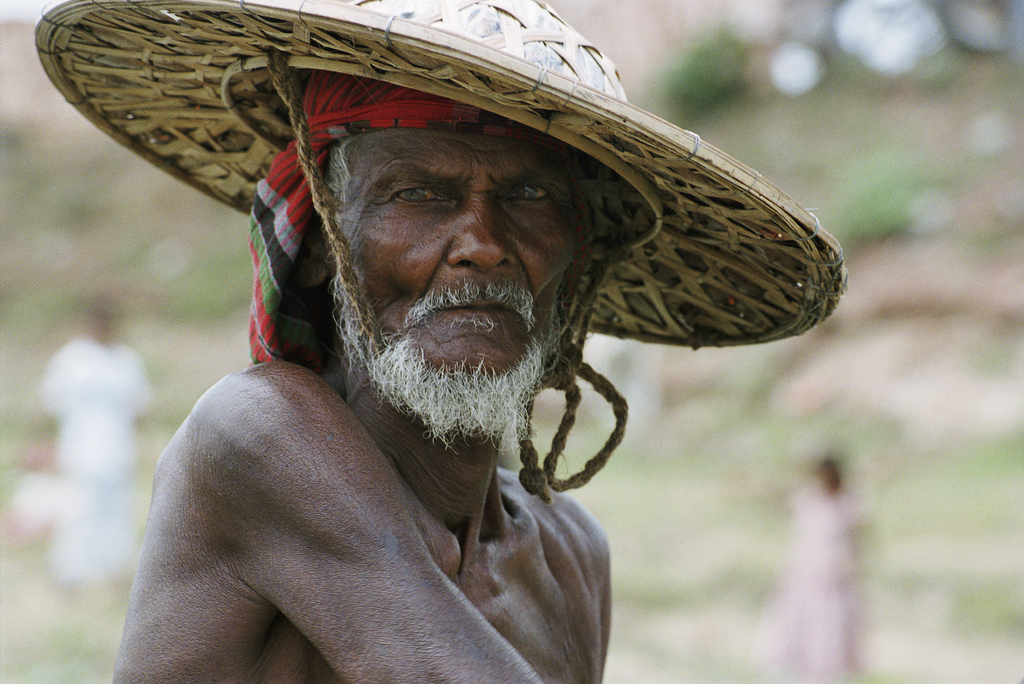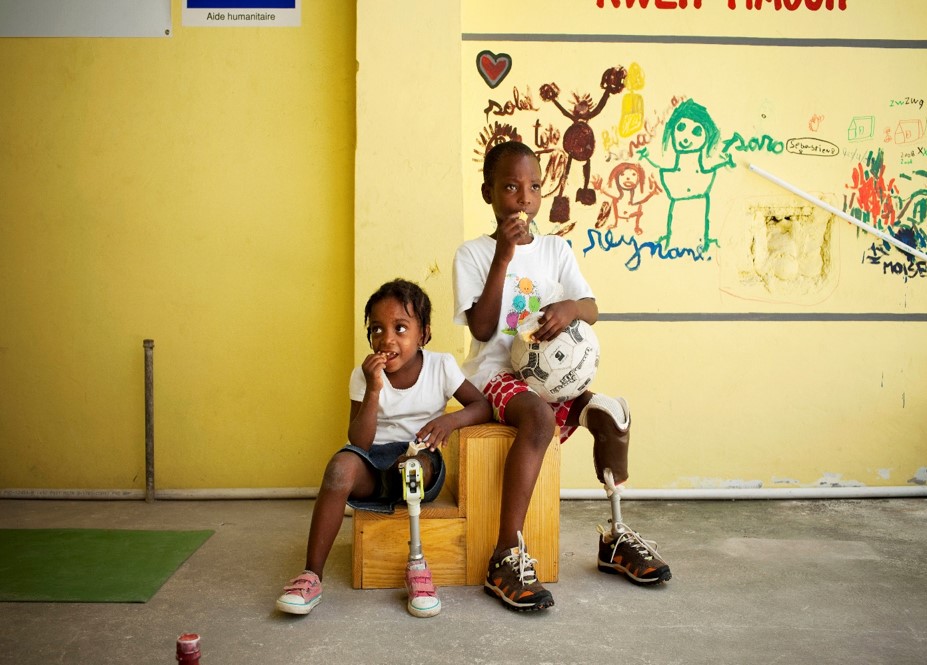Second World Summit for Social Development
Poverty Reduction and Climate Resilience: Achieving Both Simultaneously
The objective of this event was to show how poverty reduction and climate resilience are intimately connected and should be addressed through programs and policies simultaneously, and to suggest that this is an excellent focus for climate adaptation work going forwards from the Brazil COP. The solutions event was a reflection on a regional conference in Lusaka on the topic in May held by the organizing partners.
Tribute to Joseph Simbaya, a leader of our work in Zambia
We remember Joseph a much-loved colleague, a trusted friend, and a truly remarkable human being. Joseph was known for his warm spirit and wonderful sense of humour. His presence had a way of making people feel at ease, valued, and understood.
He was the person so many of us turned to, the one we could always count on. Joseph never hesitated to go the extra mile to help others. His generosity, humility, and dedication to teamwork made him an inspiration to everyone who had the privilege of working with him.
Anyone who called Joseph a colleague, a friend, or even an acquaintance has a story to tell, a story of how he came through for them when it mattered most. Whether through a kind word, sound advice, or a simple act of support, Joseph made a lasting difference in people’s lives. We will always remember him for his humble beginnings, which he shared with such pride and honesty, and was reflected in his research with so many people less advantaged than him. His journey was truly inspiring, one that transcended borders and reflected a deep commitment to excellence and service. Through his work, he built lasting networks and supported many who have gone on to improve themselves because of his encouragement and mentorship.
Joseph was more than a colleague, he was a mentor, a friend, and a steady source of strength. He believed deeply in the potential of others and took great joy in seeing his colleagues thrive. As we say goodbye, we do so with heavy hearts but with immense gratitude for the time we shared with him. Joseph’s legacy lives on in the people he uplifted, in the values he upheld, and in the countless people that he built professionally. We will always remember what he stood for: humility, kindness and service.
Key messages about eradicating poverty while simultaneously supporting climate resilience
Raising the living standards of billions of people in poverty is perfectly feasible within planetary boundaries but requires wealthier people to consume less material goods. Waning international commitments to development, however, particularly among high-income countries, constrain these efforts. National politics in this space is emerging as an increasingly critical tool to drive poverty reduction and climate resilience through inclusive and sustainable growth, strengthened systems to manage risks, and continued investment in human development and infrastructure. Political settlements which enable this need continuous crafting and/or recrafting in this rapidly changing landscape. The set of key messages—launched on the International Day for the Eradication of Poverty on 17 October 2025 — speaks to priority areas in achieving poverty reduction and climate resilience simultaneously.
Second World Summit for Social Development | Side Event
Poverty Reduction and Climate Resilience: Achieving Both Simultaneously
6 November | 2025 13:15–14:30 (local Doha time) | Room 11, World Summit venue, Doha, Qatar
Second World Summit for Social Development, Doha, Qatar The Institute of Development Studies (IDS) and the Ministry of Community Development and Social Services (MCDSS), Republic of Zambia, invite you to join this Solutions Session on poverty reduction and climate resilience as mutually reinforcing goals. The event will take place as a side event at the Second World Summit for Social Development in Doha.
New CPAN Publications: Climate Resilience and Poverty Dynamics in Zambia
CPAN has been working intensely in Zambia since 2019, with a growing focus on climate resilience as well as poverty dynamics and poverty reduction, in the light of an apparent increasing intensity and frequency of climate related extreme weather events. It has recently released a bunch of papers – watch this space for more to come on rural pathways out of poverty, rural finance, urban poverty, cash + programming and more.
Read the full papers below:
Source: Diwakar, V. (2025)
Women’s Agency Amid Shocks: A Gendered Analysis of Poverty Dynamics and the Implications for Social Protection in Bangladesh, Peru and the United Republic of Tanzania
We use mixed methods data to analyze gender, poverty dynamics and social protection amidst shocks and crises in rural Bangladesh, Peru and Tanzania. Results highlight high rates of transient poverty across these countries, reflecting underlying vulnerability of households and crises-driven impoverishment.
Amidst shocks, women’s resources and agency support household resilience, but are constrained by low social protection coverage. We thus derive implications for designing and implement gender-responsive, risk-informed social protection.
Author: Vidya Diwakar
Read the related UN Women blog ‘Gender and poverty amid crisis: What matters for resilience?’ here
Lusaka Conference on Poverty Reduction and Climate Resilience | 13th to 15th May 2025
Inter-Continental Hotel, Lusaka, Zambia
The Chronic Poverty Advisory Network (CPAN) at the Institute of Development Studies (UK), in collaboration with the Indaba Agricultural Policy Research Institute (IAPRI), the University of Zambia’s Institute of Economic and Social Research (INESOR), the Southern African Institute for Policy and Research (SAIPAR), the Government of Zambia’s Ministry of Community Development and Social Services, and the UK Foreign, Commonwealth and Development Office, held a Regional Conference on Poverty Reduction and Climate Resilience in Lusaka. It was well attended with over 60 research papers on 9 themes on Zambia, Zimbabwe, Malawi, Kenya, Tanzania and Rwanda, 5 plenaries, opened by Zambia’s Vice-President and with strong participation from several ministries. It concluded with a summing up of the key policy implications from the 9 thematic panels, with reactions to these from two policy panels, one focused on Zambia and one internationally.
Papers and presentations from the conference will be made available shortly.
Please read the short form and long form key messages from the conference.
Please visit the conference page to download the agenda and join online sessions.
Financial Pathways toward Greater Resilience and Economic Inclusion
Facilitating access to financial services is a core component of most economic inclusion programs, which aim to build the resilience of and create opportunities for poor and vulnerable households. These programs offer a comprehensive package of interventions, such as cash transfers, coaching, and business capital, to address the various constraints that prevent poor and vulnerable people from effectively coping with and recovering from shocks and accessing job opportunities.
This paper offers insights into how financial services facilitated as part of economic inclusion programs can better contribute to resilience building.
This paper is written by Serena Stepanovic, Inés Arévalo-Sánchez, Vidya Diwakar, and Dan Gilligan
Lusaka Conference on Poverty Reduction and Climate Resilience: Abstracts submission deadline 27 January
The Chronic Poverty Advisory Network (CPAN) and its Zambian and southern and eastern African partners are organising a conference on Poverty Reduction and Climate Resilience in Lusaka, May 13-15, 2025, to inform political and policy processes in Zambia and the region. Click the ‘call for papers’ link below to learn how to apply.
Social Assistance and Coping With Crises in Borno, Nigeria
This paper examines the relationship between social assistance, violent conflict, and intersecting crises, and considers how social assistance can help offset erosive forms of coping that could otherwise drive poverty and food insecurity. To investigate these issues, the study draws on newly collected household data covering 1,000 survey respondents in 2023 from the Konduga and Maiduguri Municipal Council local government areas in Borno, Nigeria. Borno has been an epicentre for violence over the past 15 years, and has experienced a range of intersecting crises.
To investigate these issues, the study draws on newly collected household data covering 1,000 survey respondents in 2023 from the Konduga and Maiduguri Municipal Council local government areas in Borno, Nigeria.
The working paper is authored by Vidya Diwakar, Adedeji Peter Adeniran, Emmanuel Nwosu, Fidelis Obaniyi, Chisom Udora
World survey on the role of women in development 2024: Harnessing social protection for gender equality, resilience and transformation
The “World survey on the role of women in development” is presented every five years to the Economic and Financial Committee of the United Nations General Assembly. It provides a unique opportunity to put gender equality issues on the economic policy agenda and bring together perspectives on human rights and sustainable development.
To produce the report, UN Women brought together researchers, policymakers, civil society actors, and UN system partners. Vidya Diwakar made important contributions to the report, particularly through informing Chapter 1, section C, alongside a forthcoming background report.
Source: Shutterstock
Poverty-focused mixed methods research and evaluation online course
Poverty-focused mixed methods research and evaluation online course highlights ways in which both quantitative and qualitative methods can be brought together, to more effectively examine and support poverty and inequality reduction.
If your work or research focuses on addressing poverty and inequality, our online course will help you understand, design and implement mixed methods research and evaluations.
📅 April 02 to 30, 2025 📍Online
Various discounts available for up to 30%!
Financial Inclusion & Resilience Across the Humanitarian, Development and Peace Nexus
This working paper describes some of the current, evidence-based thinking on the roles that financial inclusion can play in fostering household and community resilience in response to varying types of vulnerability, risks, and crises.
It outlines the types of benefits that financial inclusion can accrue to poor households and communities when integrated within broader resilience-focused services. It first presents a multi-sectoral resilience framework to embed financial inclusion (and financial capitals) as a key part of a gender-sensitive resilient system.
It recognizes as part of the context the array of shocks, stressors, and crises prevalent today, and accordingly the need for people in and near poverty to adapt to local realities of climate, violent conflict, and pandemics such as COVID-19 that drive and amplify financial risks.
The Capability Approach and the Sustainable Development Goals: Inter/Multi/Trans Disciplinary Perspectives
This book demonstrates how the capability approach to human development can contribute to the realisation of the 2015 United Nations Sustainable Development Goals (SDGs). The chapter on "education and sustained poverty escapes in sub-Saharan Africa" authored by CPAN analyzes the interrelationship between education (SDG 4) and sustained poverty reduction (SDG 1). It draws attention to the role of education as an asset supporting resilience, as well as other factors that combine with education to contribute to capabilities that enable sustained escapes from poverty. To investigate this relationship, the chapter synthesizes mixed-methods research by CPAN in Tanzania, Rwanda, Niger, Malawi, Ethiopia, Uganda, and rural Kenya.
Where are we on the road to zero poverty? Reflections from CPAN Associates in East and Southern Africa
The International Day for the Eradication of Poverty is upon us once more, with renewed urgency to reinvigorate action to get to zero poverty. Below, select CPAN Associates provide high level reflections, part of an ongoing discussion of how realistic this goal remains in regions of sub-Saharan Africa.
Front page of working paper
Poverty and Wellbeing in Zambia: Pandemic Update
This study attempts to provide a descriptive assessment of the reasons behind the increase in poverty witnessed in Zambia between 2015 and 2022. Although poverty in Zambia is more pronounced in rural than urban areas, the increase in poverty was much higher in urban areas. This increase may be at least partly explained by a confluence of factors, including load shedding, the Covid-19 pandemic, which considerably negatively affected businesses and employment, and the effect of rising prices, which also put pressure on households’ purchasing power.
Empowered Worldviews: Assessing the Persistence of Psychosocial Intervention Effects in Zambia
Evidence on the persistence of psychosocial outcomes of interventions over the medium and long term, and in the face of shocks and stressors, is limited. We examined the extent to which empowerment associated with a psychosocial, faith-based approach, Empowered Worldview (EWV) persisted 3–5 years post-delivery of the intervention in Zambia among smallholder farmers. The EWV intervention in Zambia was delivered as part of THRIVE, an integrated livelihoods programme. We followed a previous study to disaggregate individual-level empowerment associated with EWV into three domains: internal (which relates to ‘power within’), localised (typically participation and access), and structural (e.g. institutional, environmental, and social structures).
CPAN Policy Brief: Zambia Poverty Dynamics Research
The policy agenda proposed here builds on good measures already taken by the Government of Zambia in education, social protection, debt relief and macroeconomic management, and addresses the challenges that remain in creating a more prosperous and equal Zambia.
The rate of poverty reduction slowed in Zambia during the 2010s, and especially with the 2019 drought and policy responses to the pandemic. A high level of rural chronic poverty is associated with farming and other natural resource-based occupations, suggesting that natural resource management requires significant policy attention. Surprisingly, chronic poverty is highest in eastern and southern Zambia, despite the maize- and livestock-based economies in those regions.
Source: Shutterstock
Forging Renewed Commitments Towards Eradicating Extreme Poverty
On 27 and 28 September 2023, the Centre for the Study of Global Development at the Open University hosted the international workshop ‘Poverty Reduction: Rethinking Policy and Practice’. As co-organisers, we reflect on four of the key take-aways of the workshop discussions.
Poverty, Hunger and Jobs: Pandemic Update and Recovery Prospects
In many countries, the post-COVID-19 recovery has been slow and incomplete. To promote the joining up of SDGs (1- no poverty, 2- zero hunger, 8- decent work and economic growth), CPAN/IDS, IFPRI, Southern Voice, and the Global Donor Platform for Rural Development co-convened a three-day virtual international workshop in June 2023 on “poverty, hunger and jobs”.
New CPAN Online Course: Mixed Methods on Poverty and Inequality
Mixed methods research and evaluation are critical to international development professional and practitioner roles across all specialisms. Yet undertaking this method of research and evaluation on complex issues can be challenging. Which is why we’re pleased to announce that the Chronic Poverty Advisory Network (CPAN) is offering a specialist professional course on mixed methods – within a poverty and inequality context.
Chronic Poverty Report 2023: Pandemic Poverty
CPAN’s latest Chronic Poverty Report is now live!
It aims to help decision-makers and multi-lateral agencies prepare for future crises as well as suggesting recommendations to recover equitably from the Covid-19 pandemic.
Photo credit: IDS
CPAN moves to Institute of Development Studies
After 11 years at ODI, the Chronic Poverty Advisory Network (CPAN) has moved to the Institute of Development Studies (IDS) at the University of Sussex.
Read more in the announcement
Pandemic Policy Responses and the Wellbeing of the Poor and Vulnerable
During the pandemic CPAN researchers returned to re-interview people interviewed pre-pandemic, and produced a number of bulletins as part of a Covid-19 Poverty Monitoring Initiative. It is continuing and synthesising this work.
Watch the UNDESA and CPAN webinar here
Zimbabwe Covid-19 Poverty Monitoring Research
Our latest poverty monitoring research from Zimbabwe shares findings from interviews with people living in poverty about the impact of Covid-19 on their lives.
This bulletin found that people were concerned about food security, conflict and heightened price of staple goods along with Covid-19. Read more in the May bulletin.
ODI International Day for the Eradication of Poverty Webinar
How can we get back on track to end extreme poverty after the shock of Covid-19? Watch our ODI webinar for International Day for the Eradication of Extreme Poverty 2021 and read the research that informed the event.
Informing COVID-19 Policy in Zambia and Rwanda Webinar
How has Covid-19 affected Zambian and Rwandan families, workers and business owners? Watch CPAN and IPA’s webinar to hear findings from our poverty monitoring initiative in Zambia and IPA's RECOVR survey in Zambia and Rwanda.
CPAN: Key Messages to Eradicate Chronic and Extreme Poverty
What is Chronic Poverty?
Poverty Dynamics: The ‘Life Histories Approach’
Life Histories are in-depth interviews which explore the key events and moments during an individual’s life that contribute to improve their situation, getting worse or stagnating. While panel data provides information on the proportions of people on different poverty trajectories, qualitative data explore why some households are improving their situation while others are not.
Learn more on our What we do page.




